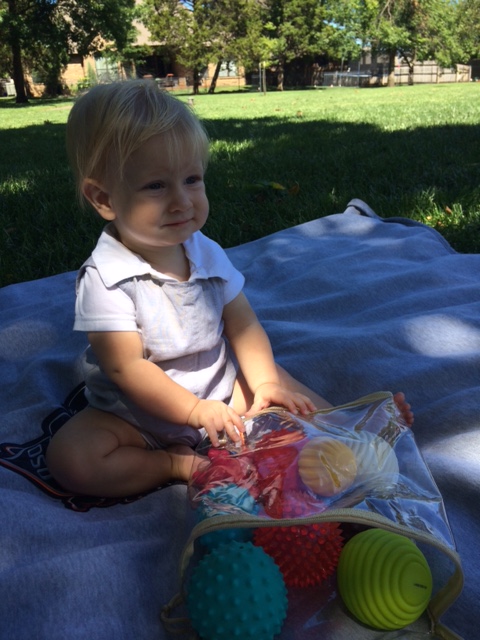 When I was 11 years old and encountered the Rule of Saint Benedict for the first time, I promptly adapted the idea of “a rule of life” to my own particular circumstances and churned out a little document I dubbed “The Kristinian Rule.”
When I was 11 years old and encountered the Rule of Saint Benedict for the first time, I promptly adapted the idea of “a rule of life” to my own particular circumstances and churned out a little document I dubbed “The Kristinian Rule.”
The rule admonished me to pray three times a day (hey, like the Didache!), to practice piano for two hours daily and to finish my evenings with some kind of “wholesome” hobby like “embroidering.” (I don’t recall how faithful I was at following all of it, but I know for a fact I rarely got in my full two hours of piano practice!) One of these days, I’ll dig out that old rule and publish it; I think you’d get a kick out of it.
At the time, I thought I was highly original in doing this. Obviously, I was very young.
Today, I realize I’m far from the first person who has thought to apply Saint Benedict’s genius insight — that a strict exterior order yields wonderful interior freedom — to the life of a layman. (It’s also important to note that, in creating his rule, Saint Benedict was himself drawing on the longstanding wisdom of the Church, bringing something new and practical out of the Church’s storehouse of old and mystical treasures, among which one of the foremost is the liturgy and the rhythm it establishes for all of life!)
Holly Pierlot, for example, wrote an entire book about this called “A Mother’s Rule of Life.” I read it shortly after I had Sweet Potato and, while I found it belabored at times, I also thought it provided a helpful framework within which to think about my various responsibilities as a Christian disciple, wife, mother and homemaker.
Thoroughgoing as I often am (frequently to my detriment!), I completed every exercise she includes in that book and so I now have a binder filled with Excel spreadsheets that tell me exactly what I ought to be doing at every hour of every day, every week of every month, every month of every year to follow my “rule of life.”
That sounds pretty strict and as though — if I’m really following it — I must be extraordinarily productive, but, because maternal responsibilities are not easily scheduled (in the first year of life, in particular, feedings, diaper changes and naps are never perfectly predictable!), it’s actually a pretty loose “rule.” I allot hours for every mealtime and entire days for basic responsibilities like sorting laundry and planning meals!

In other words, the rule is not oriented toward productivity, although I am more productive when I follow it; it’s oriented toward right relationships — first with God, then with my husband and then with my children — and aims to establish the order necessary for those relationships to flourish.
Instead of “Wash on Monday, Iron on Tuesday, Mend on Wednesday, Churn on Thursday, Clean on Friday, Bake on Saturday and Rest on Sunday,” I (theoretically) “Wash on Monday, Meal Plan and Grocery Shop on Tuesday, Pay Bills on Wednesday, Read and Write or Socialize on Thursday, Clean on Friday, Run Errands on Saturday and Rest on Sunday.” On a daily basis, prayer, play, meals, naps, chores and leisure recur at regular intervals, as well.

It’s been more than a year since I’ve compiled that binder and, even though I’ve probably followed its prescriptions only about a third of the time, on some level, its very existence has liberated me from the dreaded trap of distraction and from the even more dreaded trap of despair. When I perceive an increase in activity with a coinciding decrease in prayer and peace, I return to my rule. When I feel overwhelmed and unsure of myself, I return to it. When I notice the children seem unable to focus, I return to it.
Inevitably, after a week of following it to the letter, I’m recalibrated.
As I’ve experienced this phenomenon again and again — the anxiety that follows deviation from the rule, the peace that flows from adhering to it — I’ve come to understand the concept of “a rule of life” more and more.

The essence of the rule is not the schedule; the essence of the rule is the faithful discernment and humble acceptance of the various duties that indubitably accompany our state in life — and, perhaps even more important, the conscious eschewing of whatever might interfere with those duties.
Those words — “discernment” and “acceptance” — are important, particularly for those of us postmoderns who’ve grown up idolizing ambition and productivity. A rule is not so much about what we want or aspire to do; it’s about whatever God is actually calling us to do. After all, if He’s calling us to something, we ought to do it, whatever we feel, and, if He’s not, we ought not, however good that something might be in and of itself.
Lest that sound horribly dreary, as though I’m advocating that we all resign ourselves to lives in which no private dream comes true and no personal desire is ever satisfied, may I remind you that God is good, that He knows even better than we what will make us happy and that, mercy of mercies, He does take us — our interests, our tastes and, yes, our most deeply-felt desires — into account? He asks us to surrender, to die to ourselves, true, but not so as to become nothing, but, rather, so as to become like Him. So, let’s stop grasping at what He wants to freely give us!

For a mother, the process of discernment and acceptance is an especially subtle one, for her responsibilities change as her children grow, which is to say daily. Yet, on some level, her mission remains the same, whatever her children’s shifting, specific needs might be: To bring order and wonder to her home and to civilize her children, to fit them for the City of Man and, more importantly, the City of God.
Whatever their ages, it falls to her to ensure that they are fed, clothed and sheltered; that they are formed in the faith, taught to pray and given ample silence and solitude within which to encounter Christ; and that they are granted regular access to her — her love, her presence and her example.
Realistically, a mother cannot herself meet all of those needs all the time (although she must, obviously, be the one to meet the child’s need for access to her!); she is going to need help. It is a part of her process of discernment to assess which needs are best addressed by her specifically and which needs another person can meet at no detriment to — and, preferably, to the benefit of — her relationship with her children.
As I discerned these questions for myself, it occurred to me that, in the early stages, most of the relationship between a mother and child is physical, so I wanted to be the person to meet as many of my children’s physical needs as possible. That required that I stay home with them the vast majority of the time and forgo a good deal of the writing I’d otherwise like to do. It also required that I spend more time washing clothes and contemplating meals than I’d prefer.
As they grow, though, it might very well be that I’ll discern God is calling me to hire a personal chef (oh, how I hope so!). Let’s face it, a chef could nourish my babies’ bodies and refine their palates far better than I ever could — and I could surely use the time I now spend agonizing about meals more fruitfully, as well. If you, though, are the kind of mother who infuses the food you serve your children with a gustable love, no personal chef could ever match what you’re providing for your children when you cook dinner for them!
The point is, a mother must discern for this season of life and trust that she’ll sense when she’s in the next season and needs to tweak her rule accordingly. That said, she must also allow herself a full season in which to follow her rule or she’ll never see the benefits! Part of the purpose of a mother’s rule is to smooth the day-to-day discernment process and spare a mama the mental energy required to answer the question, “What should I do today?” She won’t have to ask that question every day because her rule will tell her what to do!
Again, as I said above, I’ve personally found that the mere existence of a pre-discerned, written rule for my life has drawn me back from the precipice of distraction and despair more times than I can count! (OK, so my mom has also talked me back from that precipice more times than she can count — but, if she only knew how many times my rule has spared her the stress and aggravation of a frantic phone call from me, she’d be thanking God for it daily!)

If you’re interested to learn more about this concept, Pierlot’s book is a good place to start — but, if you’d rather not read an entire book, this little article provides a specific, rule-inspired idea that you could implement today if you so chose. I’ll also be sharing more details of my own rule in the days to come.
A time to sleep and a time to wake are two biggies (and also two that I consistently struggle to maintain!) — so I’d better hit the hay! As always, thanks for reading!
I’ve never heard of a Rule of Life before, but as a person who loves rules and thrives on schedules and structure I’ve been apparently living by this principle anyway since I was a small child.
I’ve never considered using my rule to orient my life and relationships towards God (oddly enough), but I’ll bet that oversight on my part is probably why I’m met with frustration when my order doesn’t quite yield the peace I expect it to.
Thanks for always giving me something to think about!
LikeLike
Thanks so much for reading and commenting, Kari! Glad you found this thought-provoking — and am glad to have yet another friend with whom I can relate over my penchant for rule-keeping! I was that kid who hopped in the car after a day of school and promptly told my mom about every little infraction that other kids had committed, oblivious to the log in my own eye! I just wanted everyone to BEHAVE! Ha! It’s a wonder I wasn’t more popular. 😉 I saw your blog post about pharisaism and so appreciated it!
LikeLike